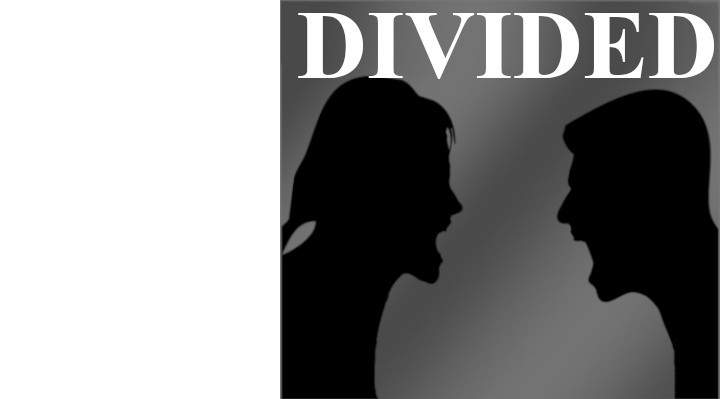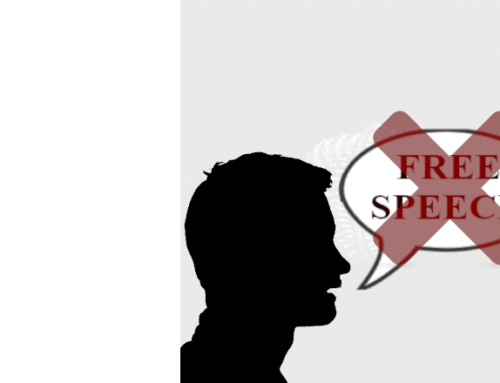In his eighteenth century classic, Letters from an American Farmer, J. Hector St. John de Crèvecoeur said he had never seen such assimilation as in America. The French writer said our ability to “melt” disparate peoples into a new man was remarkable and unparalleled. Thus was the idea of a “melting pot” born. What he said is nicely acknowledged in our national motto, E pluribus unum, “out of the many one.”
That was then. Now we are a badly divided people, and most of the reasons for our predicament are not an accident: they represent the logical consequences of a series of policies and programs, many of which originated at colleges and universities; they are designed to divide us.
From multiculturalism, which teaches hatred of western civilization, to the promotion of mass migration, which makes mince meat out of the “melting pot” ideal, we are nation divided; it is evident along racial, ethnic, religious, class and sex lines.
In June, Pew Research Center released survey results that show the effects of the culture war on politics. The differences between Biden and Trump supporters are vast.
“Someone can be a man or a woman even if that is different from the sex they were assigned at birth.” This question, which is biologically illiterate—no one “assigns” our birth (it is determined by our father)—is seen by Biden supporters as true. But not for Trump supporters. Six-in-ten of Biden’s fans (59 percent) believe this to be true, but only one-in-ten (9 percent) of Trump’s fans believe it makes sense.
“The criminal justice system in this country is generally not tough enough on criminals.” Only a minority of Biden enthusiasts (40 percent) agree, but most of those drawn to Trump (81 percent) agree.
“Society is better off if people make marriage and having children a priority.” A mere 19 percent of Biden supporters agree with this statement, as contrasted to 59 percent of Trump supporters.
Whether the question is how much slavery still explains racial inequality (Biden fans think it does) or America’s openness to people from all over the world is essential to who we are as nation (Trump fans are not buying it), the chasm is wide.
There is also a lot of hatred. I use the word intentionally. I am not talking about people disagreeing—that is commonplace—I am talking about hatred.
I have met a lot of conservatives who say they hate so-and-so (a public figure) because he is a liberal. In some cases, I know the person rather well, and while I may have sharp disagreements with him, I know him as a friendly and honest person. So I reply by saying, “Do you know him personally?” Of course they don’t. That gives me an opportunity to defend my characterological assessment, insisting on drawing a difference between disagreeing with someone and hating him.
Those who love Biden hate Trump, and vice versa. The hatred of Trump, often called “Trump derangement syndrome,” is so bad that 86 percent of Biden’s biggest supporters, as reported in a recent Rasmussen survey, approve the Justice Department’s authorization of “the use of deadly force” in retrieving documents at Trump’s residence in Mar-a-Lago.
It is interesting to note that most Democrats disagree that we are not tough enough on crime, yet believe that Trump should be subjected to a raid where deadly force is authorized—for an alleged crime of a non-violent nature. The hatred runs deep.
What’s driving these outcomes? As I show in my new book, Cultural Meltdown: The Secular Roots of Our Moral Crisis, the divisions we are seeing are ultimately traceable to a conflict between a religious vision of man and society and a secular one.
The data show conclusively that when it comes to religiosity, or beliefs and practices, Republicans are clearly more likely to say that religion is important to them. Not so for Democrats—they are the Party of secularists. To show how this plays out, consider the Pew question on marriage and the family.
Democrats do not agree that “Society is better off if people make marriage and having children a priority.” But why? Secularists see such a conviction as an anathema because it challenges their belief in autonomy. That which might interfere with career goals is not an option, and in any event it smacks of patriarchy. It also carries a religious meaning, and that is taboo.
Now it may be that for any particular individual, making marriage and the family a priority is to interfere with his or her personal goals, at least at that time. But the question wasn’t about the respondent’s personal life; it was about what is in the best interests of society. To those fixated on themselves, which is more common among secularists, that is not a viable choice. They are drawn to thinking in terms of me, not we.
This, too, shall pass. But in the meantime, that which divides us remains real. It is also eating away at our social fabric.







